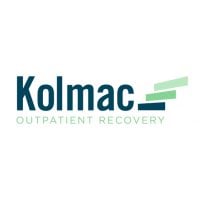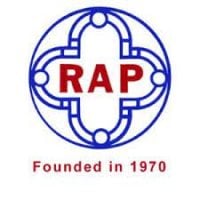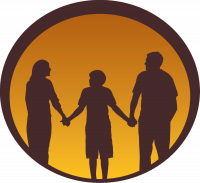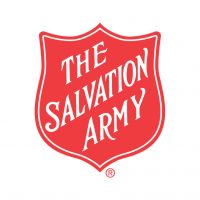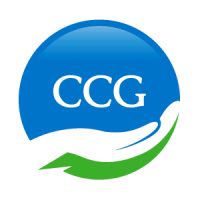
Concerted Care Group Frederick
Drug Rehab Center in Washington, District of Columbia
- Substance Abuse
- Drug Addiction
Concerted Care Group Frederick is an outpatient addiction treatment center in Washington, D.C., providing tailored treatment plans for addiction and substance abuse, including medication-assisted treatment, counseling, life skills training, family therapy, cognitive behavioral therapy, and dialectical behavior therapy.
About Concerted Care Group Frederick in District of Columbia
Concerted Care Group Frederick, situated in Washington, DC, is a private outpatient rehab facility that specializes in treating substance abuse disorders. The center provides comprehensive, individualized treatment plans tailored to each client's unique needs, ensuring they receive the best possible care.
• Offers medication-assisted treatment, counseling, life skills training, and family therapy
• Utilizes evidence-based practices such as cognitive behavioral therapy and dialectical behavior therapy
• Specializes in treating co-occurring disorders, addressing both addiction and mental health issues
• Works closely with family members to support their loved one's recovery journey
Accredited by the Commission on Accreditation of Rehabilitation Facilities (CARF) and licensed by the District of Columbia Department of Health, Concerted Care Group Frederick has been recognized for its exemplary patient care. The facility has been awarded the Recognized Treatment Program distinction from the Substance Abuse and Mental Health Services Administration (SAMHSA).
In addition to treating various substance abuse disorders, Concerted Care Group Frederick offers specialized programs for opioid addiction, including medication-assisted treatment and medication detox. The clinic also provides community outreach services and free screenings for substance use disorders, demonstrating their commitment to helping individuals in need.
Genders
Ages
Modality
Additional
Accreditations
SAMHSA
Conditions and Issues Treated
A combination of treatments is often needed to treat drug abuse. Some addictions can be treated with counseling and support groups. In other cases, drug abuse can lead to a medical problem and require medical treatment. Treatment for drug addiction typically combines counseling and psychotherapy with medication and behavioral therapies.
A combination of treatments is often needed to treat drug abuse issues effectively. In the case of drug abuse, there is no easy answer or one-size-fits-all cure.
Levels of Care Offered
This center offers a variety of custom treatment tailored to individual recovery. Currently available are Aftercare Support, Drug Rehab, Intensive Outpatient, Outpatient, with additional therapies available as listed below.
The Intensive Outpatient Program offered by Concerted Care Group Frederick is designed for those who need intensive care but would rather get it in the comfort of their own home. The treatment programs vary in duration and intensity and can be tailored to suit the patient’s needs. The program includes regular visits to the facility, though the overnight stay is not needed. IOP is suitable for patients who have been treated in residential treatment programs and are in the transition phase. It helps the patient live at home and discharge some work or school responsibilities even while undergoing treatment. The patients gradually get back to their routine life with the support of a friend or family member.
Outpatient treatment is often used for drug addicts in drug rehab. Outpatient treatment consists of counseling and therapy sessions. This form of treatment is also called ‘day-treatment’. The outpatient treatment process begins with the addict’s initial detox period, lasting about ten days.
Outpatient treatment is used for those who are at moderate risk for ‘slipping back’ into the addiction, for those who:
- Are not currently experiencing any side effects from withdrawal and can handle social pressure
- Can handle stressors that might trigger relapse
- Have a stable living environment or have moved out of their previous environment, which was not conducive to being sober
- Have a support system that allows them to go to a facility a few times a week while still keeping their current responsibilities
- Have no legal obligations, being either on parole or probation, that require them to seek treatment at a mandatory facility
- Are not currently experiencing any side effects from withdrawal and can handle social pressure
- Have a stable living environment or have moved out of their previous environment, which was not conducive to being sober
Completing a drug or alcohol rehab program is only the first step. Then comes aftercare support. These services include sober living accommodations, career counseling, and AA/NA programs for those struggling with sobriety or who want help maintaining it after initial rehab at an addiction facility.
They can last up to a year or more depending on what’s needed most urgently after the earlier stages are completed.
Therapies & Programs
Trauma therapy is beneficial for people who are recovering from drug addiction because it helps them heal from past traumas that may have caused them to turn to harmful substances or led them to experience negative emotions that contributed to their destructive behaviors.
This type of treatment works by processing difficult experiences so individuals can learn how to process these events without having to turn to substances for coping.
Trauma therapy can help addicts in the following ways:
- Helps individuals understand their experiences and emotional responses to difficult events, including why they turned to drugs or alcohol
- Provides them with comfort and support while working through difficult emotions related to these traumatic experiences
- Offers an opportunity for addicts to have a voice and be heard, which can improve their self-esteem
- Can help them develop coping skills so they can better respond to triggers instead of turning to substance abuse.
Dialectical Behavior Therapy (DBT) is a cognitive-behavioral therapy that helps patients understand the relationship between their thoughts, feelings, and behaviors. It is beneficial for those whose addictions and behaviors stem from severe mental health issues. The term “Dialectic” means the integration of opposites. In substance abuse, DBT refers to accepting the patient’s addiction and working to change their thoughts and behavior. It improves life skills such as controlling intense emotions without reacting impulsively, resolving interpersonal conflicts effectively, and promoting awareness about self and others.
Cognitive-behavioral therapy is a technique that is used to help people with addiction. Specifically, it is a way of identifying thoughts and behaviors that cause the addiction. It is typically used in an individual counseling session.
The content explains cognitive behavioral therapy and how it works to address some behaviors that may be leading to unintended consequences in their life, as well as its benefits for those seeking sobriety.
It works by helping people to talk through their issues and addressing the thoughts that cause said behaviors. It is an excellent way of learning about oneself and one’s perception of the world.
Additional Details
Specifics, location, and helpful extra information.
Washington, District of Columbia 21701 Phone Number(240) 815-7282 Meta DetailsUpdated April 15, 2024
Staff Verified
Concerted Care Group Frederick Patient Reviews
There are no reviews yet. Be the first one to write one.
Washington, District of Columbia Addiction Information
In Washington, District of Columbia, there were 9,912 admissions to drug and alcohol treatment facilities in 2016. The most commonly abused drugs in the district include cocaine, heroin, and marijuana. Families are struggling to cope with addiction, and many people are looking for help. Many excellent drug rehab centers in Washington, District of Columbia, can help people struggling with addiction get clean and sober.
Treatment in Nearby Cities
Centers near Concerted Care Group Frederick
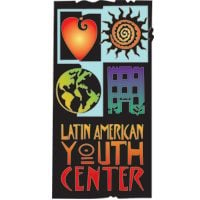
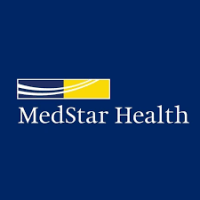

The facility name, logo and brand are the property and registered trademarks of Concerted Care Group Frederick, and are being used for identification and informational purposes only. Use of these names, logos and brands shall not imply endorsement. RehabNow.org is not affiliated with or sponsored by Concerted Care Group Frederick.


